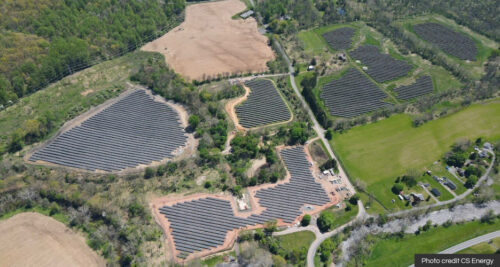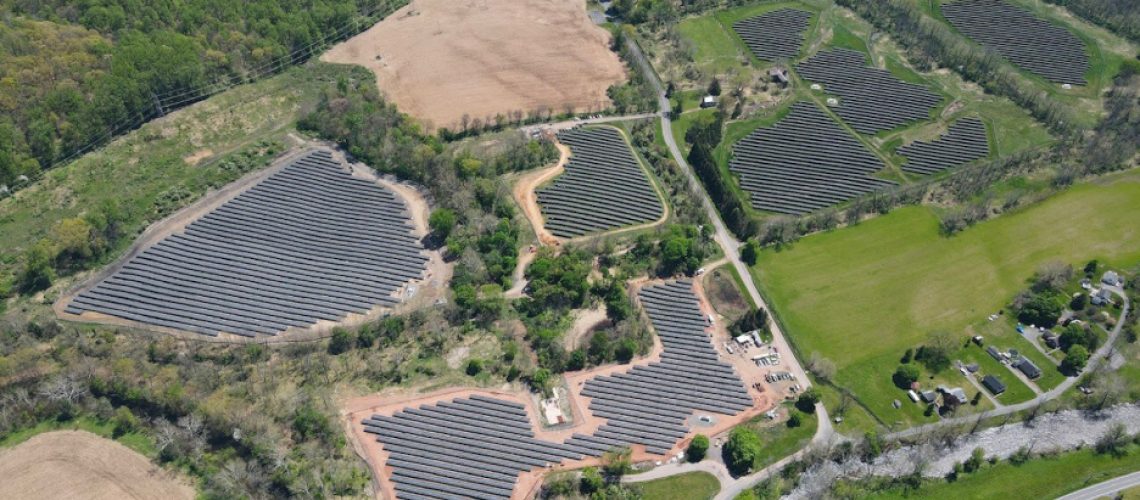CEP Renewables, CS Energy and NJR Clean Energy Ventures (CEV) announced the conversion of a former contaminated brownfield into a 17-MW solar project in Holland, New Jersey. This fixed-tilt solar array was constructed in two phases on a site that previously housed a paper mill complex.
 “We’re pleased to leverage our extensive experience with redeveloping Superfund and brownfield sites to turn this previously contaminated property into a source of solar energy, jobs and tax revenue,” said Chris Ichter, Executive Vice President at CEP Renewables. “We were able to efficiently overcome the unique challenges this site posed by working closely with the property owner and the EPC, CS Energy, at every stage of the project.”
“We’re pleased to leverage our extensive experience with redeveloping Superfund and brownfield sites to turn this previously contaminated property into a source of solar energy, jobs and tax revenue,” said Chris Ichter, Executive Vice President at CEP Renewables. “We were able to efficiently overcome the unique challenges this site posed by working closely with the property owner and the EPC, CS Energy, at every stage of the project.”
CEV acquired the Holland project from CEP Renewables in 2021 and now owns 63 commercial solar projects throughout New Jersey, New York, Rhode Island and Connecticut, with a portfolio of more than 430 MW of installed capacity.
“NJR Clean Energy Ventures has a long history of working with CEP Renewables and CS Energy on complex solar projects to bring the benefits of clean energy to communities throughout New Jersey,” said Robert Pohlman, Vice President of NJR Clean Energy Ventures. “We are committed to building a clean energy future with projects like Holland. By repurposing brownfields and other underutilized spaces to produce clean, renewable energy, CEV is helping to deliver clean energy innovations that drive emission reduction goals and power a more sustainable future.”
In the 1990s, the former paper mill site was abandoned and fell into disrepair. CEP Renewables was sought by the property owner, a company that decommissions former industrial sites, to redevelop this land. CEP’s team reviewed the entire environmental history and provided critical review and recommendations before the completion of the remediation by the responsible party. This helped to reduce the time needed by the New Jersey Department of Environmental Protection to issue the remedial action permit. Prior to CEP Renewables assuming control of the site, the area was remediated, deed restricted and covered with an engineering control. CEP’s team enhanced the existing engineering controls to be compatible with the solar redevelopment.
CEP Renewables and CS Energy also overcame several challenges, including the permitting and construction of a second phase of the project overlapping with the first. Additionally, the project had to be built around a historic farmhouse and powerhouse located on a portion of the property.
“We are glad to have had the opportunity to work alongside CEP Renewables on another impactful brownfield solar project,” said Michael Dillon, Director of Operations at CS Energy. “The completed redevelopment of this property now generates clean energy for the state and additional tax revenue for the local municipality.”
News item from CEP Renewables



